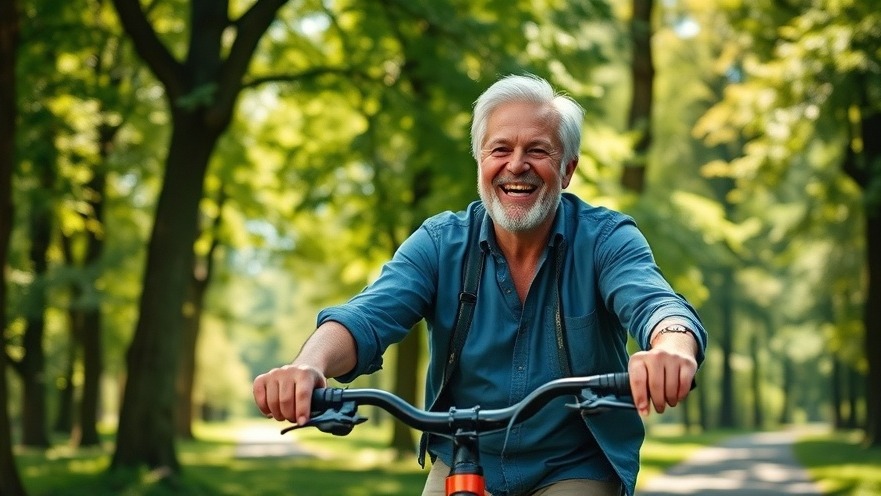
New Research Highlights the Connection Between Cycling and Dementia Risk
In an extensive study published in JAMA Network Open, researchers at the UK Biobank tracked nearly 480,000 adults over 13 years, establishing a clear link between cycling and a reduced risk of dementia. This includes lower risks for different types of dementia, such as Alzheimer’s and both young-onset and late-onset variants. Notably, the results showed a marked benefit among individuals without a genetic predisposition to dementia, suggesting that lifestyle choices can significantly counterbalance genetic risks.
Better Brain Health Through Cycling: What Does This Mean for Your Practice?
As concierge medical practitioners, understanding the implications of such studies can greatly enhance our patient engagement strategies. This research not only reinforces the importance of promoting physical activities like cycling but also emphasizes how these activities can positively affect mental health. Encouraging patients to incorporate cycling into their daily routines could not only improve their physical health but also reduce their risk for cognitive decline, thus adding invaluable depth to your holistic health care offerings.
Innovative Non-Invasive Monitoring of Bone Healing
In an exciting development from Saarland University, researchers have created a non-invasive tool that uses near-infrared light to track bone healing without X-ray exposure. This groundbreaking approach measures blood flow and oxygen levels at the fracture site, providing early indicators of healing complications. In clinical trials involving 55 patients, the results were promising, indicating a potential shift towards safer monitoring options, especially in remote areas where X-ray access is limited.
How This Tool Impacts Your Practice's Offerings
Adopting cutting-edge technologies like this light-based monitoring system could position your practice as an innovator in patient care. Offering patients access to state-of-the-art healing monitoring could not only improve their outcomes but also serve as a strong marketing point. Highlighting these advancements can enhance your reputation and attract patients looking for modern and effective treatments.
Revolutionizing Burn Recovery Through Bioengineered Skin
Another notable innovation comes from scientists at Tel Aviv University and Sheba Medical Center, who have developed an advanced bioengineered skin graft utilizing the patient’s own cells. This innovation not only reduces recovery time for severe burns by half but also eliminates the use of animal products and mitigates skin shrinking—a common issue with traditional grafts. Early studies showed that wounds healed in just four days, with signs of hair follicle growth also emerging.
Implications for Patient Care and Practice Growth
For practice owners, this kind of innovative therapy represents significant prospects for growth. Offering clients access to advanced rehabilitation strategies could distinguish your practice in a competitive market, effectively positioning you as a leader in comprehensive care. Emphasizing such advancements can help attract prospective clients who prioritize cutting-edge medical treatments.
Conclusion: Harnessing Innovation to Boost Your Practice
As new research and technologies emerge, staying ahead is crucial for concierge medical practice owners. Emphasizing the health benefits of cycling and exploring advanced monitoring and treatment options not only enhances patient care but also strengthens your practice’s reputation. Patients who are educated about their health choices are more likely to engage and invest in their well-being. As we move forward, let these developments inspire new strategies for patient connection and practice growth.
 Add Row
Add Row  Add
Add 






Write A Comment